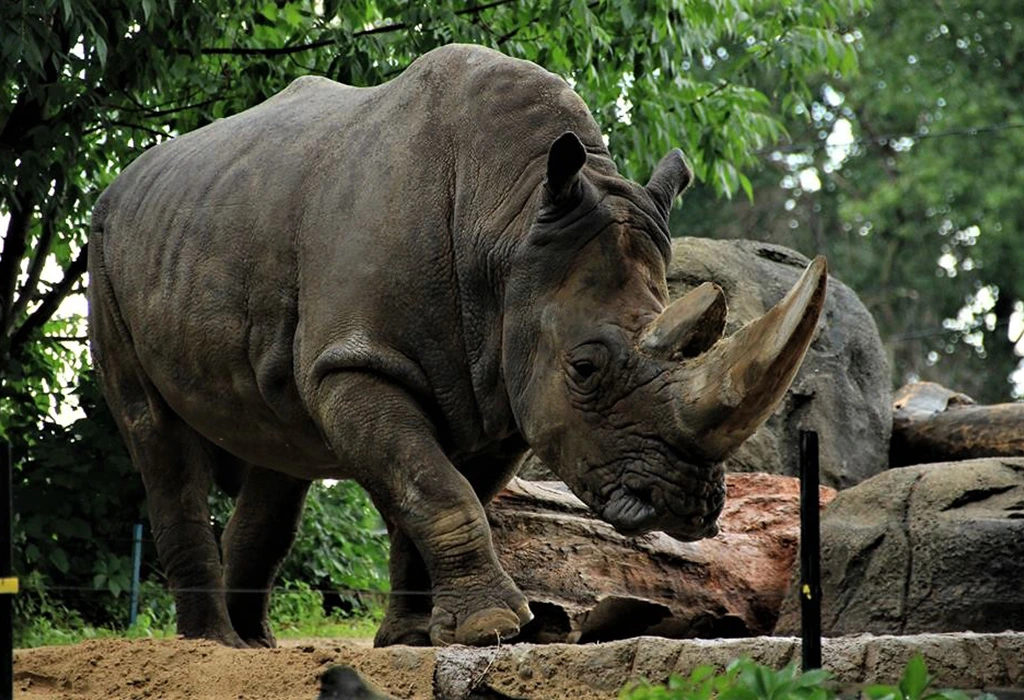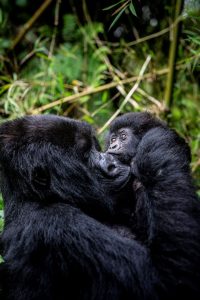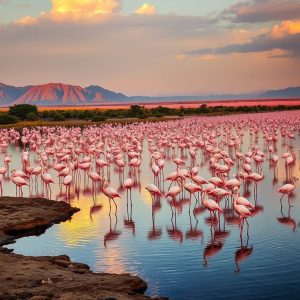Africa offers some of the most enriching and sustainable eco-adventures on the planet. From rainforests teeming with primates to wide-open savannahs full of iconic wildlife, this continent blends raw natural beauty with meaningful conservation efforts. Eco-tourism in Africa allows you to experience the wild responsibly, while also supporting local communities and protecting endangered species.
What Is an Eco Adventure?
An eco-adventure is a travel experience that emphasizes responsible interaction with nature and local communities. It prioritizes sustainability, conservation, and cultural respect. In Africa, eco-adventures can include gorilla trekking, walking safaris, birdwatching, cultural immersions, marine conservation, and more—all designed to minimize impact while maximizing your connection with nature.
Why Choose Africa for an Eco-Adventure?
Africa is a biodiversity hotspot. It is home to thousands of animal species, unique ecosystems, and centuries-old cultures. The continent also leads in community-based conservation and responsible tourism. By choosing eco-friendly experiences here, travelers play a direct role in wildlife protection and economic empowerment.
Top Eco Adventure Destinations in Africa
Rwanda – Gorilla Trekking and Rainforest Exploration
Rwanda’s Volcanoes National Park offers one of the world’s most powerful eco-adventures: mountain gorilla trekking. Permits are limited and funds go directly to conservation and communities. Nyungwe Forest National Park, another top destination, is ideal for chimpanzee trekking and canopy walks. Rwanda’s eco-lodges, such as Bisate and Nyungwe House, run on solar energy and support local employment and reforestation.
Uganda – Primates and Wildlife in Harmony
Uganda combines savannah safaris with rainforest trekking. Bwindi Impenetrable Forest and Mgahinga National Park are ideal for gorilla tracking. Kibale Forest offers the best chimpanzee viewing in Africa. The country’s eco-tourism efforts include conservation education, tree planting, and community-based tourism ventures.
Botswana – Mokoro Canoe Safaris in the Okavango Delta
The Okavango Delta is a UNESCO World Heritage Site and a pristine wetland ecosystem. Traditional dugout canoe (mokoro) safaris allow for quiet wildlife observation. Lodges use solar power, minimize water usage, and support anti-poaching efforts. Botswana is often cited as one of Africa’s most successful models for sustainable tourism.
Kenya – Community-Based Conservation in Action
Kenya’s conservancies such as Ol Pejeta and Lewa offer intimate wildlife experiences while directly benefiting local people. Walking safaris, electric game drives, and cultural visits are common. Eco-lodges in the Maasai Mara region emphasize waste reduction and sustainable water use while training local Maasai as guides and hospitality staff.
Tanzania – Ethical Wildlife Safaris and Marine Sanctuaries
Tanzania is home to the Serengeti, Ngorongoro Crater, and the Selous Game Reserve. These areas are globally recognized for eco-tourism leadership. Lodges in these parks often contribute to wildlife corridors, support schools, and help reduce human-wildlife conflict. On the coast, marine parks like Mafia Island and Chumbe Island Coral Park lead in coral reef protection and ocean education.
Namibia – Desert Ecology and Solar-Powered Lodges
Namibia’s Community-Based Natural Resource Management program is a global model. Eco-tourism here empowers local communities to manage wildlife and tourism. Desert lodges near Sossusvlei, Etosha, and the Skeleton Coast operate off-grid and use sustainable water systems.
Zambia – Walking Safaris in Untouched Wilderness
South Luangwa National Park is famous for pioneering the walking safari. Zambia offers less crowded parks and stronger conservation-focused operations. Visitors experience the bush on foot, guided by expert trackers, while staying in lodges that partner with local villages.
Mozambique – Marine Conservation and Remote Islands
Mozambique’s Bazaruto Archipelago and Gorongosa National Park are emerging as top eco-tourism locations. Lodges often fund coral restoration projects and community health programs. Eco-activities include snorkeling, whale watching, and mangrove exploration.
Best Eco Adventure Activities in Africa
- Gorilla and Chimpanzee Trekking: Rwanda, Uganda, and the DRC offer some of the world’s last opportunities to observe great apes in the wild.
- Walking Safaris: Zambia, Kenya, and Tanzania specialize in guided bush walks, which emphasize tracking, birdwatching, and safety.
- Cultural Tours: Interact respectfully with communities like the Maasai, Batwa, and Himba to learn about traditional lifestyles.
- Birding Adventures: Countries like Uganda and Namibia host hundreds of bird species. Birdwatching is a low-impact, deeply rewarding activity.
- Marine Eco Tours: Tanzania and Mozambique offer diving, turtle conservation, and reef monitoring.
- Volunteer Safaris: In several parks, guests can help with wildlife monitoring or conservation projects as part of their travel.
How Eco Tourism Helps Africa
- Wildlife Conservation: Revenue from eco-adventures funds ranger patrols, habitat restoration, and species protection programs.
- Community Development: Many eco-lodges reinvest in education, healthcare, and entrepreneurship in nearby villages.
- Cultural Preservation: Responsible tourism celebrates and protects indigenous knowledge, language, and traditions.
- Carbon Reduction: Sustainable travel helps reduce emissions by encouraging renewable energy and green building practices.
When to Go for Eco Adventures in Africa
- Dry Season (June to October): Best time for wildlife viewing and trekking. Trails are more accessible and animals gather near water sources.
- Green Season (November to May): Excellent for birding and lush landscapes. Some areas may be harder to reach due to rains but offer fewer crowds.
How to Choose an Eco-Friendly Tour or Lodge
- Look for Certified Operators: Choose lodges and tour operators certified by eco-labels such as EcoTourism Kenya, Fair Trade Tourism, or Travelife.
- Ask About Sustainability: Find out how they manage waste, energy, and water, and how they support local communities.
- Small Group Travel: Smaller groups have a lighter environmental impact and offer more personalized experiences.
- Read Guest Reviews: Seek feedback from travelers who’ve already visited especially regarding ethical treatment of wildlife and people.
Tips for a Responsible Eco Adventure in Africa
- Bring reusable water bottles and avoid single-use plastics.
- Support local artisans and guides by buying souvenirs or booking tours locally.
- Respect wildlife by keeping your distance and following your guide’s instructions.
- Learn about local customs, dress modestly, and greet people respectfully.
- Offset your carbon footprint when possible through trusted programs.
Make Your African Journey Count
Eco adventures in Africa are more than vacations—they’re journeys that connect travelers with nature, purpose, and humanity. Whether it’s tracking gorillas in misty forests or gliding across the Okavango at sunset, every experience supports conservation and empowers communities.
By choosing eco-friendly travel, you become part of Africa’s story of resilience and renewal. You witness the wild in its purest form, and in doing so, you help protect it for the future.
Let your next adventure in Africa be guided not just by where you want to go, but by how you want to travel—and what kind of positive impact you want to leave behind.




